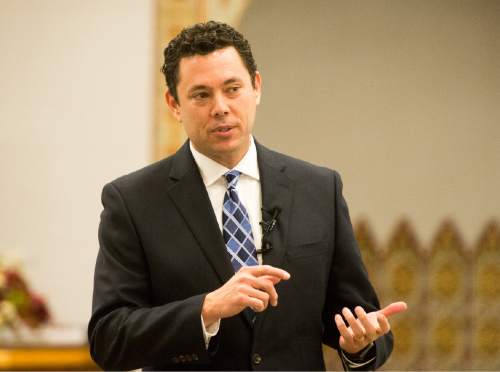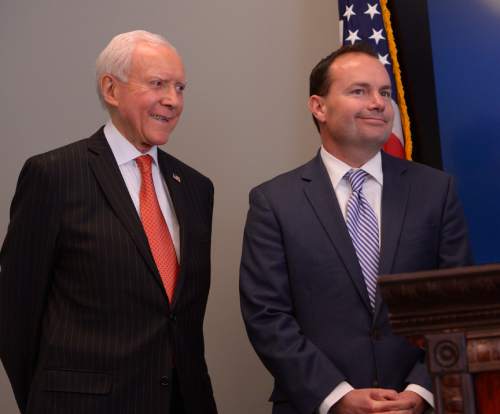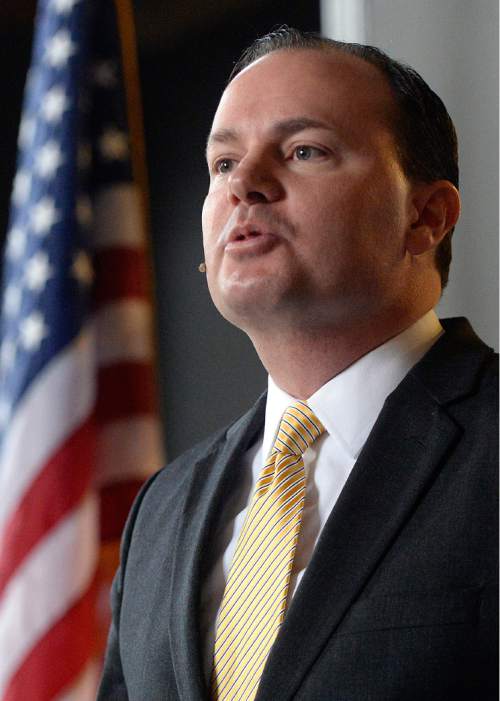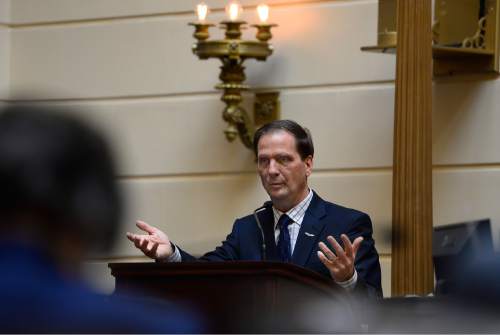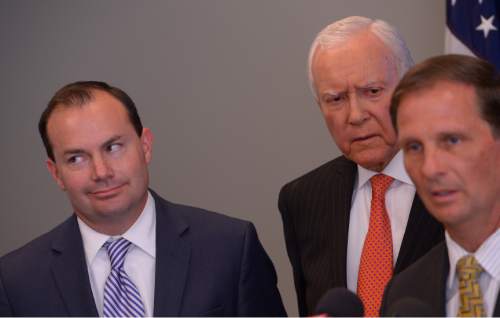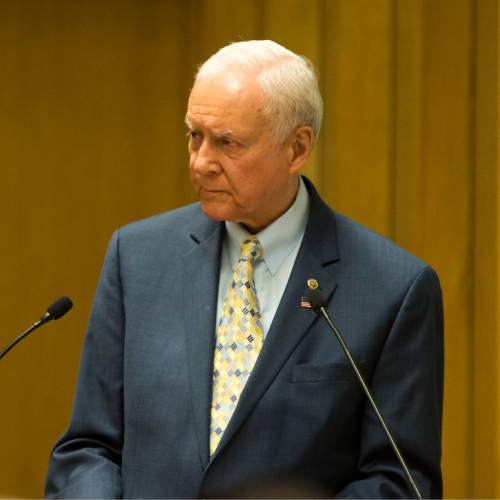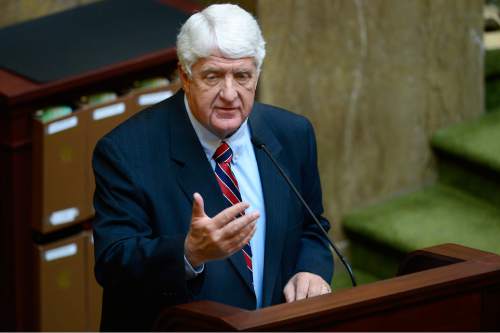This is an archived article that was published on sltrib.com in 2016, and information in the article may be outdated. It is provided only for personal research purposes and may not be reprinted.
Washington • Utah's members of Congress said that if President Barack Obama was trying to end — or at least tone down — the partisan squabbles in Washington with Tuesday's State of the Union speech, he shouldn't have thrown so many barbs at Republicans.
During his final annual address to Congress, Obama said America needs to fix its divisive politics in favor of more "rational, constructive debates." But he also tweaked the GOP, noting that "when the Russians beat us into space, we didn't deny Sputnik was up there."
That line didn't sit well with the Republican side of the chamber.
"I felt like he would, in very subtle ways, diminish or even ridicule those who don't agree with him while at the same time lecturing us on the cynicism of politics," Rep. Chris Stewart, R-Utah, said after leaving the House chamber. "I mean, you just can't do those two things in the same speech. People sense that. They understand that, and it takes away some of the powerful message that he was trying to convey."
Added Rep. Jason Chaffetz: "He's not exactly leading by example. I thought that was one of his most liberal, divisive speeches yet. He can try to throw up the facade of uniting people, but it was not that."
The president did look to find common ground with his critics, including those in his own Democratic Party, when he talked about the need for a long-negotiated trade deal under fire from some liberal members.
His biggest applause lines of the night came when he talked about jettisoning outdated government regulations, reforming America's criminal justice system and curing cancer.
"He stumbled on a few lines that we liked," said Chaffetz, "but it seemed to be more by accident than design."
Sen. Mike Lee praised Obama for talking, albeit briefly, about criminal justice reform, an issue on which the Utah Republican has pushed legislation backed by the White House. And Lee said it was nice to hear the president talk up some issues that bridge the red-blue divide.
"We should find ways to work together," Lee said, "and he mentioned a couple things on which a lot of people can agree, regardless of their political persuasion or ideology. He mentioned a lot of others where there's not so much political agreement. That's life."
Sen. Orrin Hatch was more blunt.
"The president frequently refuses to work with the other side and rarely treats reasonable disagreement as legitimate," Hatch said in a statement. "Long after Mr. Obama leaves office, history will long remember him as among the most divisive presidents in American history. Tonight, the president's fecklessness was on full display when he chose to ignore Congress's bipartisan achievements to focus instead on the politics of division."
Another detractor, Rep. Rob Bishop, said Obama's views are "clearly not shared by me or many of my constituents."
"Our solutions must actually help people, and not merely reflect liberal dogma," Bishop said in a statement.
Rep. Mia Love, R-Utah, said that the president appeared "more concerned about his legacy," than about policies she believes would help the public. She said Obama is trying to take credit for an economic recovery where many poor people remain poor and "the middle-class continues to be squeezed by rising prices and falling wages."
Obama blamed that on global pressures and technological advancements, while Love said that "big government" played a major role.
Stewart, who is in his second term, said there was a notable lack of enthusiasm in the room for Obama's remarks.
In other years, there might have been standing ovation followed by standing ovation, or more rounds of applause.
There wasn't "much emotion in the speech or in the reception," Stewart said.
Chaffetz said there was one positive about Obama's remarks.
"I'm just glad that was the last one," the Utah Republican said.


